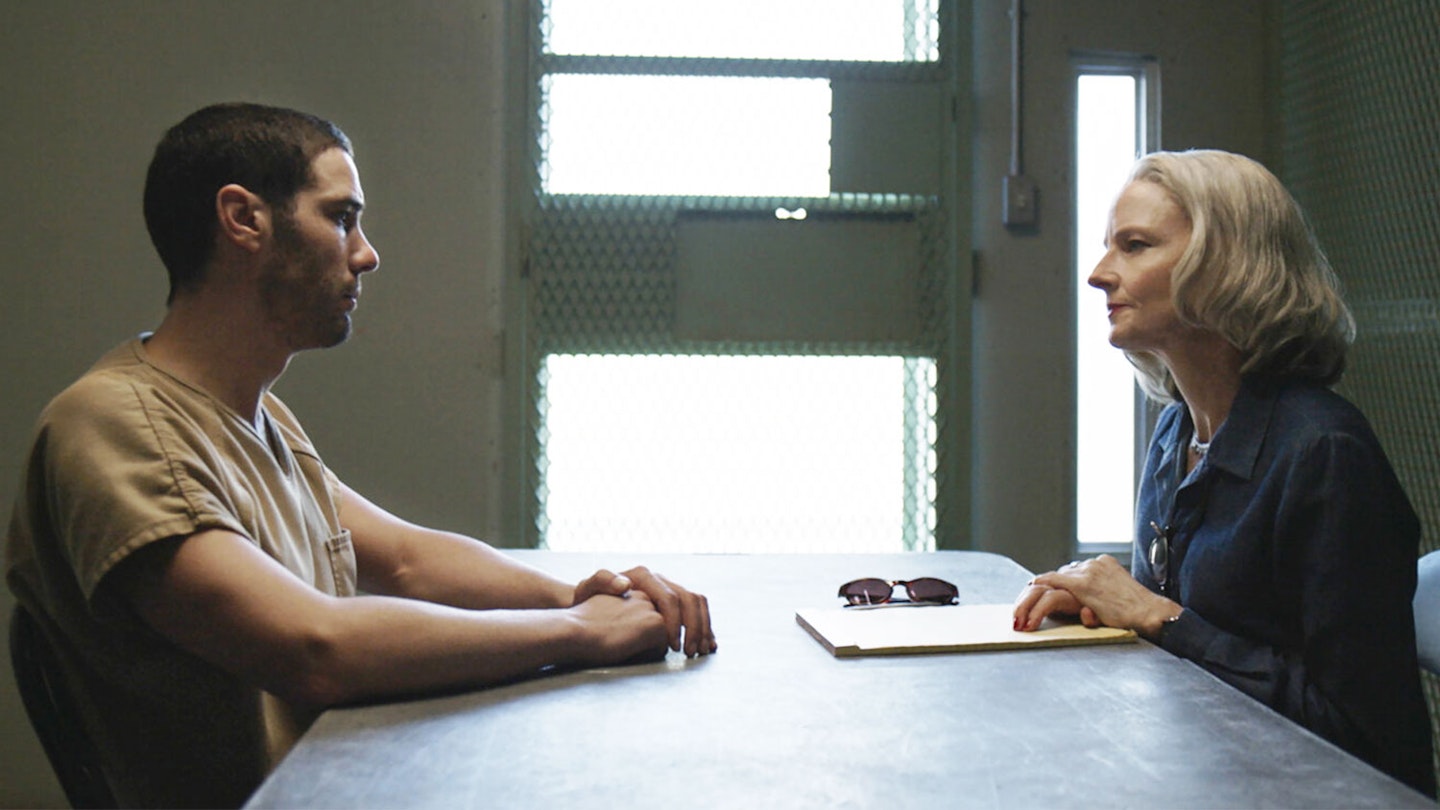It’s easy to see why Kevin Macdonald was drawn to the subject matter of The Mauritanian. The true story of Mohamedou Ould Slahi, who spent 14 years banged up in the US naval base detention centre at Guantánamo Bay without ever being charged with a crime, it fits perfectly into the wheelhouse of a filmmaker who’s flitted between brilliant documentary (One Day In September, Touching The Void) and gripping fictionalised accounts of historical atrocities (The Last King Of Scotland). Sadly, The Mauritanian emerges well-intentioned but somewhat dull, lacking the scalpel-like intelligence and emotional oomph to bring Slahi’s experience truly to life.
The story starts in North Africa when Slahi (Tahar Rahim) is pulled away from a wedding celebration and transferred, via Jordan, to Guantánamo Bay for his involvement with Al Qaeda (the flimsy evidence amounts to his cousin possibly having called him from Osama Bin Laden’s phone). At this point the film quickly fractures into three strands; piqued by Slahi’s plight, criminal defence attorney Nancy Hollander (Jodie Foster) takes on his case, arguing that Slahi is facing the death penalty without any evidence or being formally charged; then there is the case for the US government, brought by Lt Col Stuart Couch (Benedict Cumberbatch, sporting a dense Southern accent), a “dog on a chain” prosecutor who has a personal axe to grind after a friend was killed in the Twin Towers tragedy; and of course Slahi, dealing with legal types he is wary of and trying to survive his often brutal incarceration.
This multiplying of plotlines dilutes both the urgency and the richness of the story, never giving the characters room to breathe.
This multiplying of plotlines dilutes both the urgency and the richness of the story, never giving the characters room to breathe or narrative momentum to build. The investigation is mostly Hollander and her assistant Teri (a wasted Shailene Woodley) rifling through redacted papers in boxes of files or Couch doorstepping military parties, neither the stuff of great drama. Instead, Macdonald uses Slahi’s torture scenes to raise the temperature, but the subsequent waterboarding, heavy metal, sexual humiliations and threats to Slahi’s mother are presented in such an abstract way — aspect ratio changes, fisheye lens, blurry focus, puke-green fluorescent lighting — that they lose their shock value. Slahi was tortured for 70 days straight. His experience doesn’t need a skew-whiff angle to bring the horror.
Foster has little to work with to make Hollander rounded, striking red lipstick and almost white hair standing in for character (at one point her walk past Guantánamo cells towards Slahi evokes Clarice Starling). Cumberbatch has the dimension of being a man of faith but he still can’t find colours in his hard-nut lawyer. It’s left to Tahar Rahim as Slahi to give the film a skein of humanity, investing him with soul and feeling; his relationship with an unseen French national in the prison yard is the film’s true moment of human connection. It’s something that The Mauritanian, as its characters edge towards an outcome and a point that the audience have already grasped, could have done with a lot more of.

